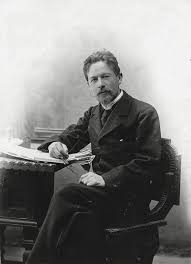THE COST OF WISDOM: ANALYZING HUMAN NATURE AND MATERIALISM IN CHEKHOV'S 'THE BET
"The Bet," a short story written by Anton Chekhov,
delves into the themes of human nature, the value of life, and the conflict
between materialism and intellectualism. The story begins with a heated debate
between a banker and a young lawyer about whether life imprisonment is more
humane than capital punishment. The banker argues that capital punishment is
more merciful, while the lawyer contends that life, no matter how harsh, is
always better than death.
To prove his point, the lawyer agrees to spend fifteen years
in solitary confinement in exchange for two million rubles, which the banker
promises to pay if the lawyer completes the term. The bet is set, and the
lawyer voluntarily isolates himself in the banker's guest house, where he
spends the next fifteen years in complete solitude, with only books, music, and
a piano for company.
Over the years, the lawyer undergoes a profound
transformation. He starts by indulging in books about pleasure and material
wealth but soon turns to classic literature, philosophy, and eventually,
religious texts. Through his reading, he gains knowledge and wisdom, gradually
detaching himself from worldly desires. The lawyer's intellectual journey is
depicted as a process of enlightenment, where he learns to transcend the physical
confines of his imprisonment and discovers the deeper meanings of life.
As the fifteen years draw to a close, the banker, who has
since lost much of his wealth due to reckless gambling and financial
mismanagement, becomes increasingly anxious about the bet. Realizing that
paying the two million rubles would ruin him, the banker contemplates killing
the lawyer to avoid fulfilling his part of the deal.
On the eve of the lawyer's release, the banker sneaks into
the guest house with the intention of murdering him. However, he finds a letter
from the lawyer, in which the lawyer renounces the money and expresses his
disdain for material wealth and human vanity. The letter reveals that the
lawyer has come to view life, knowledge, and wisdom as far more valuable than
any monetary reward. In his letter, he states that he will leave the
confinement five hours before the agreed-upon time, thus forfeiting the money.
The banker, overcome with guilt and relief, kisses the
lawyer on the head and leaves the guest house. The next morning, the lawyer
fulfills his promise and leaves the confinement early, disappearing into the
night. The banker, ashamed of his intentions and relieved that he doesn't have
to pay the money, locks the letter in his safe as a reminder of the lawyer's
sacrifice and his own moral failure.
"The Bet" explores the futility of human greed and
the ultimate insignificance of material wealth when compared to intellectual
and spiritual enlightenment. Chekhov uses the characters of the banker and the
lawyer to represent opposing worldviews—one rooted in materialism and
self-interest, the other in the pursuit of knowledge and understanding. The
story highlights the transformative power of isolation and introspection,
suggesting that true wisdom comes not from external wealth but from inner
growth and the rejection of worldly desires.
WRITING
STYLE
Anton Chekhov's writing style in "The Bet" is
characterized by its conciseness, clarity, and keen observation of human
nature. Chekhov employs a minimalist approach, using straightforward language
and avoiding unnecessary embellishments. His prose is economical, with every
word serving a purpose, which allows the story's themes and characters to
emerge naturally without being overshadowed by ornate descriptions or complex
language.
Chekhov is known for his ability to convey deep
psychological insights through subtle details and actions rather than through
explicit statements. In "The Bet," he reveals the characters' inner
lives through their behaviors and the choices they make rather than through
extensive internal monologues. For instance, the lawyer's gradual shift from
indulgence in pleasure to a pursuit of knowledge is shown through his changing
reading habits, and the banker's moral decline is depicted through his growing
desperation and willingness to commit murder.
The tone of the story is introspective and somewhat
detached, reflecting Chekhov's focus on the internal worlds of his characters.
He often presents the events with a neutral or almost clinical perspective,
allowing readers to form their own interpretations of the characters' actions
and the moral implications of the story. This objectivity is a hallmark of
Chekhov's style, as he avoids didacticism and instead invites readers to engage
with the narrative on a deeper level.
Chekhov's use of irony is also notable in "The
Bet." The story's conclusion, where the lawyer renounces the very prize he
once desired, serves as a poignant commentary on the futility of the bet
itself. The irony lies in the fact that both characters ultimately lose—the
banker loses his moral integrity, and the lawyer, though gaining wisdom, loses
his connection to the world. This ironic twist underscores the story's
exploration of the hollowness of material wealth and the elusive nature of true
fulfillment.
In summary, Chekhov's writing style in "The Bet" is marked by its precision, subtlety, and psychological depth. He skillfully uses language to create a narrative that is both simple and profound, inviting readers to reflect on the complex interplay between materialism, knowledge, and the human condition.


Comments
Post a Comment